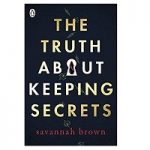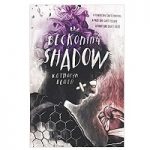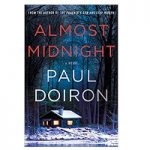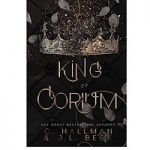Writing Commentary for The Literary Analysis Essay: Teaching Students How to Do It
Literary analysis essays certainly represent one of the most complex pieces of such written text in the writing world. At least, the majority of experts agree on that, if we are to believe the Internet information. When it comes to essays, it is not hard to understand how many students are worried about the legitimacy and legality of writing services. Today, there are many websites related to providing people with writing services. Students often come to the temptation of using them due to different reasons. And the problems often occur when the reliability of such sites comes into question. But we are going to focus specifically on literary analysis essays and commentaries associated with them. Writing these commentaries is oftentimes considered a very hard task to do. And that’s why we are here. If you read this article, you are in the right place to find out how you can write commentaries for your literary analysis essay.

Be Direct as Much as Possible
Before we roll deeper into the depths of literary analysis essays’ commentaries, you need to know what such essays exactly are. It is not a rare case that students find themselves confused when they hear this term. That probably comes as a consequence of their lack of knowledge and information about them. Of course, they are not to blame because of it. When you hear something for the first time, it is all-natural to feel a little bit awkward. Luckily, we have prepared even for that kind of scenario and will gladly help and clear it out for you. Namely, literary analysis essays are the ones that consist of data about everything possible that an author can remember. At least, about all the necessary details of high importance. These essays are usually known as the ones that allow authors to express argumentative analysis of every single detail possible. From characters, plot, style of writing, and to the entire novel, for example. Even tools that writers use often come into consideration too. And above all this, there is a commentary section that needs to be fulfilled. Hopefully, now you can better understand why literary analysis essays are so complex and hard to master. In the commentary part, you should explain how the evidence you have provided readers with can prove the thesis mentioned in an essay. The point is to clarify the way your evidence proves your thesis. So, the first way to do it is to be direct as much as you can. There is no need for any procrastination and circling around the point. You must be strict, clear, and straightforward. Besides, try to be simple too. Too much complication can distract your first and most important thoughts which can negatively affect your essay. Specify your evidence directly in a manner like “this explains that”. Don’t overdo it as it can have the opposite effect. It is as simple as that.
Don’t Mix Up the Meanings of The Words “Analysis” And “Commentary”
It may sound silly but something that students often get confused about is to clearly understand the difference between the term’s “analysis” and “commentary”. The point is there is no any. Both terms are related to analyzing and commenting on everything that you, as an author, wrote in your essay. Just don’t get confused about it as some professors may unintentionally do it. Everyone has their own way of calling this section. Some teachers may even call it an explanation while others call it observation, for instance. You must clearly get familiar with the terminology and be aware that this part can be named in many different ways.
LET Method
LET Method is another way that you can implement the writing of your commentaries for literary analysis essays. It may seem that this method has some close connection with letting something or someone goes away or similar things, right? Well, it doesn’t. It is referred to as so-called “Literary Elements & Techniques”. But what does this method have in common with the commentary section and how it can be implemented? Stay tuned to find out. Therefore, you should know that quotations in literary analysis essays are pretty common to see. The point lies in the right detection of the elements mentioned above inside of quotes you have written. After that, all that is left is to describe in detail how these elements can prove your further statements.
4-Square Method
Writing commentaries for literary analysis essays sometimes require a certain level of creativity to be met by its author. You are probably fully and well aware of how creativity plays a significant role in every type of writing. Being creative also means being original. And that is where the biggest obstacles appear. If you have successfully solved issues related to your originality, then you can freely turn to apply a 4-square method. You probably wonder what this method implies, right? Well, it is an activity that simultaneously can be fun and also help you with writing your commentaries perfectly and correctly. How? As its name says, it implies writing 4 squares in the first place and all of them have a different theme. Usually, those are part of the commentary section (1 sentence which covers two bottom squares), topic, and quotation. The point of this method is to help students see how all of these aspects can work together but also can each of them work individually. Besides providing them with help for commentaries, this method allows students to work in small groups, develop their social skills, and experience working in unity and togetherness. It is often the case how they are positively surprised by the efficiency that the 4-squares method can bring.
Conclusion
As mentioned at the beginning of this article, writing commentaries for literary analysis essays will be a hell of a job. But every effort comes with a proper reward. You should remember that. Hopefully, the methods that we have prepared for you can truly help you to write your commentary perfectly!










